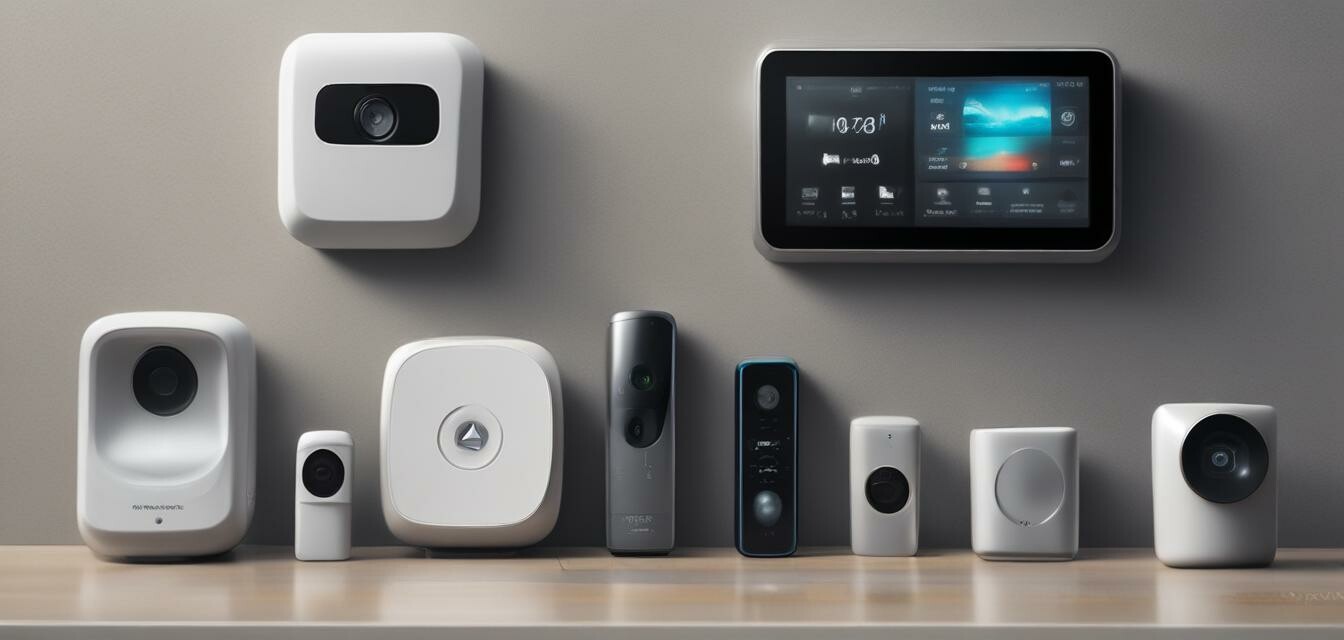
Regular maintenance for smart security devices
Key Takeaways
- Regular checks ensure devices function correctly.
- Maintenance enhances the lifespan of your smart security systems.
- Simple tasks like battery changes can prevent failures.
- Keep your software up to date for optimal performance.
- Document your maintenance schedule for easier tracking.
Keeping your smart security devices in peak working condition is essential for ensuring they perform optimally. Proper maintenance not only enhances the performance but also extends the lifespan of these systems. Let’s explore some essential tips for the regular upkeep of your smart home security devices.
Importance of regular maintenance
Just like any other technology, smart security devices require regular maintenance to function effectively. In modern homes, these devices are crucial for protecting our loved ones and our belongings. Regular maintenance ensures:
- Enhanced security: Regularly checking your devices can prevent vulnerabilities.
- Extended lifespan: Maintenance tasks, such as cleaning sensors and updating software, contribute to longevity.
- Optimal performance: Well-maintained devices operate more efficiently and can respond faster during emergencies.
Basic maintenance tasks for smart security devices
Here are some critical maintenance tasks to ensure your security devices are working at their best:
| Device Type | Maintenance Task | Frequency |
|---|---|---|
| Smart Cameras | Check lens for dirt and clear any obstructions | Monthly |
| Motion Sensors | Clean sensor surfaces and check for proper alignment | Every three months |
| Smart Locks | Lubricate the lock mechanism and check battery level | Monthly |
| Alarm Systems | Test system and replace backup batteries | Every six months |
| Home Automation Devices | Update firmware and check compatibility with other devices | Quarterly |
Advanced maintenance tips
For more tech-savvy homeowners, consider these advanced maintenance tips to ensure your smart security systems remain in great condition:
- Software updates: Regularly update all device software to protect against potential security flaws. For more information on effective home automation, check our buying guide.
- Network security: Ensure your Wi-Fi network is secure, as many devices rely on a stable internet connection. For networking best practices, visit our best practices section.
- Tests and drills: Conduct regular tests of alarms and notifications to ensure they work in emergencies.
- Device compatibility: Occasionally check if your devices can be integrated with new technologies.
- Cloud storage: Regularly check your settings for cloud storage and make sure recordings are being saved and accessible.
Documenting maintenance schedules
Keeping track of when maintenance tasks are performed can prevent oversight. Here’s how to document and manage your maintenance schedule effectively:
- Create a maintenance log to keep a record of each task and its date.
- Set reminders using a calendar app to ensure no task is forgotten.
- Include notes on device performance after maintenance to spot patterns or recurring issues.
Common pitfalls to avoid
While maintaining your smart security systems, avoid these common pitfalls:
- Ignoring alerts from your devices.
- Neglecting to replace batteries in a timely manner.
- Postponing software updates.
- Not engaging with your security provider for updates and tips.
- Overlooking scheduled inspections for wired devices.
Conclusion
Regular maintenance of your smart security devices is essential for ensuring their reliability and effectiveness. By following these maintenance tips, not only will your devices function optimally, but they will also provide peace of mind knowing your home is secure. Documenting the processes and avoiding common pitfalls will lead you to a stride toward a smarter, safer home.
Pros
- Enhances security and reliability of home systems
- Can prolong the lifespan of devices
- Ensures prompt responses during emergencies
Cons
- Sometimes requires a time commitment
- Possible costs involved in replacements
- Staying updated on technology can be challenging